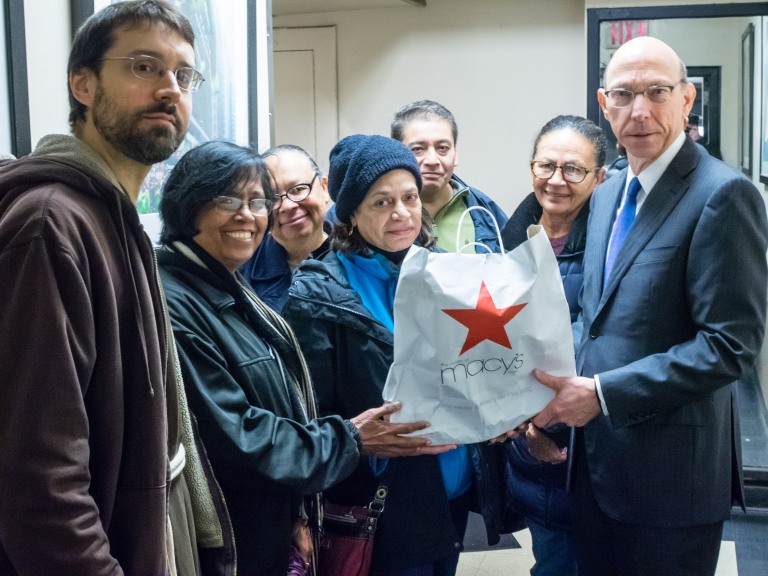The Human Thread Campaign is a program of Seventh Generation Interfaith that seeks to foster awareness that promotes solidarity between consumers of clothing and those who produce them to create a more just economy and sustainable communities.

On April 24th, 2013, 1133 people were killed and over 2500 were injured when the Rana Plaza factory complex collapsed in Dhaka, Bangladesh. This tragedy exposed the wide range of abuses connected to the sourcing of clothing. Amidst the destruction, the clothing and tags found in the rubble were those found in our own closets. We are connected as consumers to the people who create the clothes we buy. After hearing that the workers at the collapsed Rana Plaza in Bangladesh were making less than $60 a month for 60-70 hour work weeks, Pope Francis bemoaned, “This is called slave labor.” This campaign weaves the thread of materialism back to our Catholic Social Teaching, raising awareness of the slave-like conditions to which none of God’s children should ever be subjected.
The Human Thread engages Catholic parishes and Catholics colleges and universities to begin the task of re-examining our relationship with our clothes and with the people who make them. The campaign promotes the St. Vincent Pledge as a public step in showing one’s commitment to change those relationships.

In November of 2016, The Human Thread launched a postcard campaign with Kohl’s and Macy’s in support of a living wage at the sites where our clothes are made. The National Catholic Reporter covered the campaign in a story here. In December, more than 400 Macy’s postcards signed by the Catholic community of Holy Cross-Saint John the Baptist, two parishes situated in the Garment District of midtown Manhattan, were delivered to Mr. Charles Miller, a vice-president of Macy’s. In all, the campaign distributed more than 34,000 postcards for each retailer.
The garment industry is a massive part of the world economy with a highly dispersed supply chain. Changes will take time, but those changes require both the work of shareholder activists and consumers committed to our cause.

